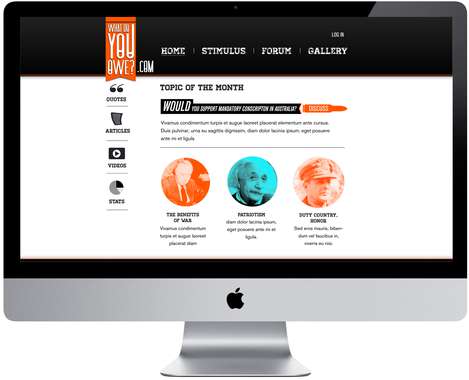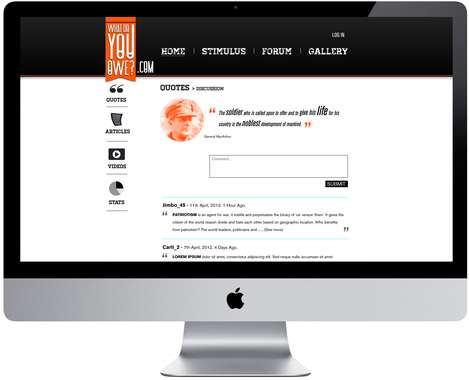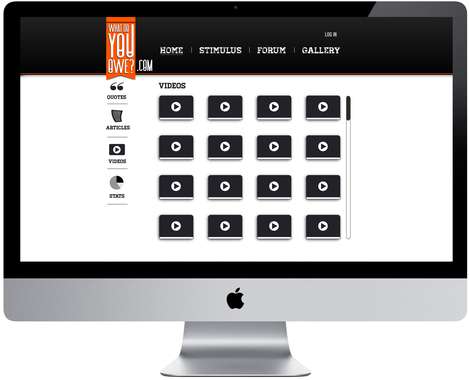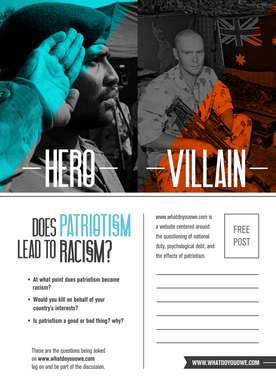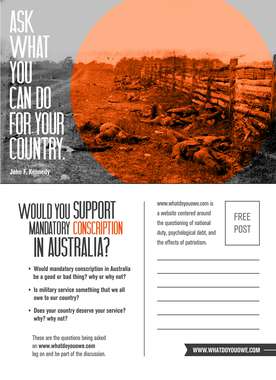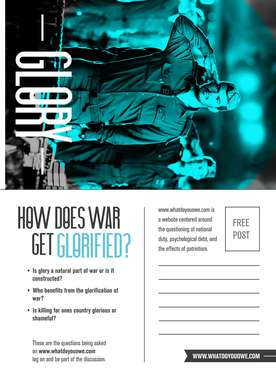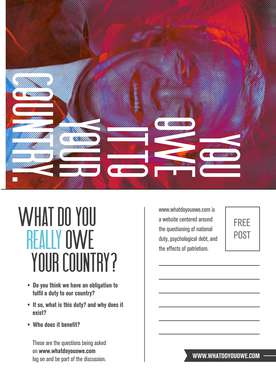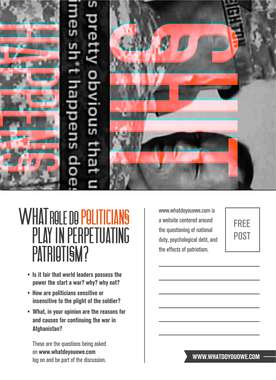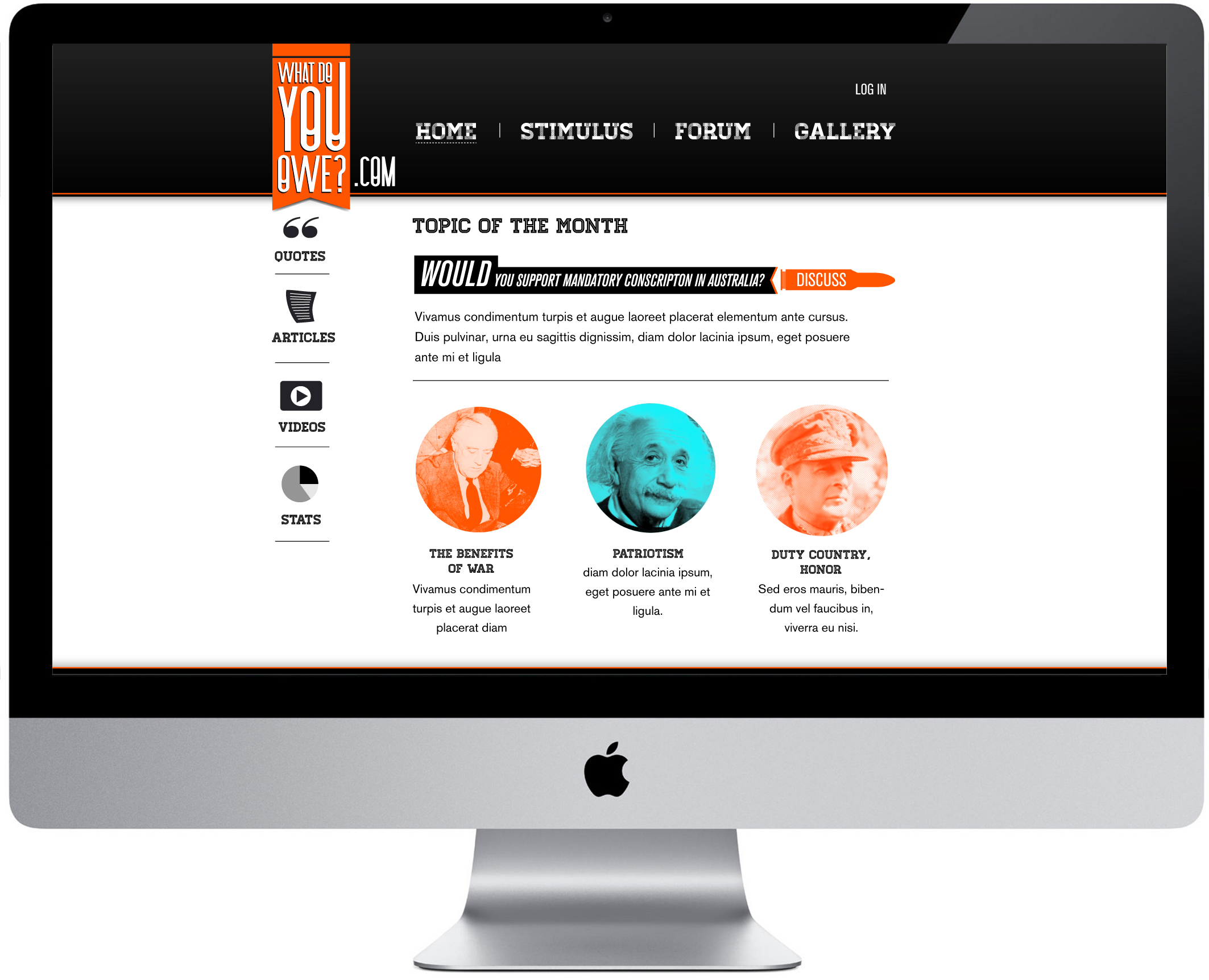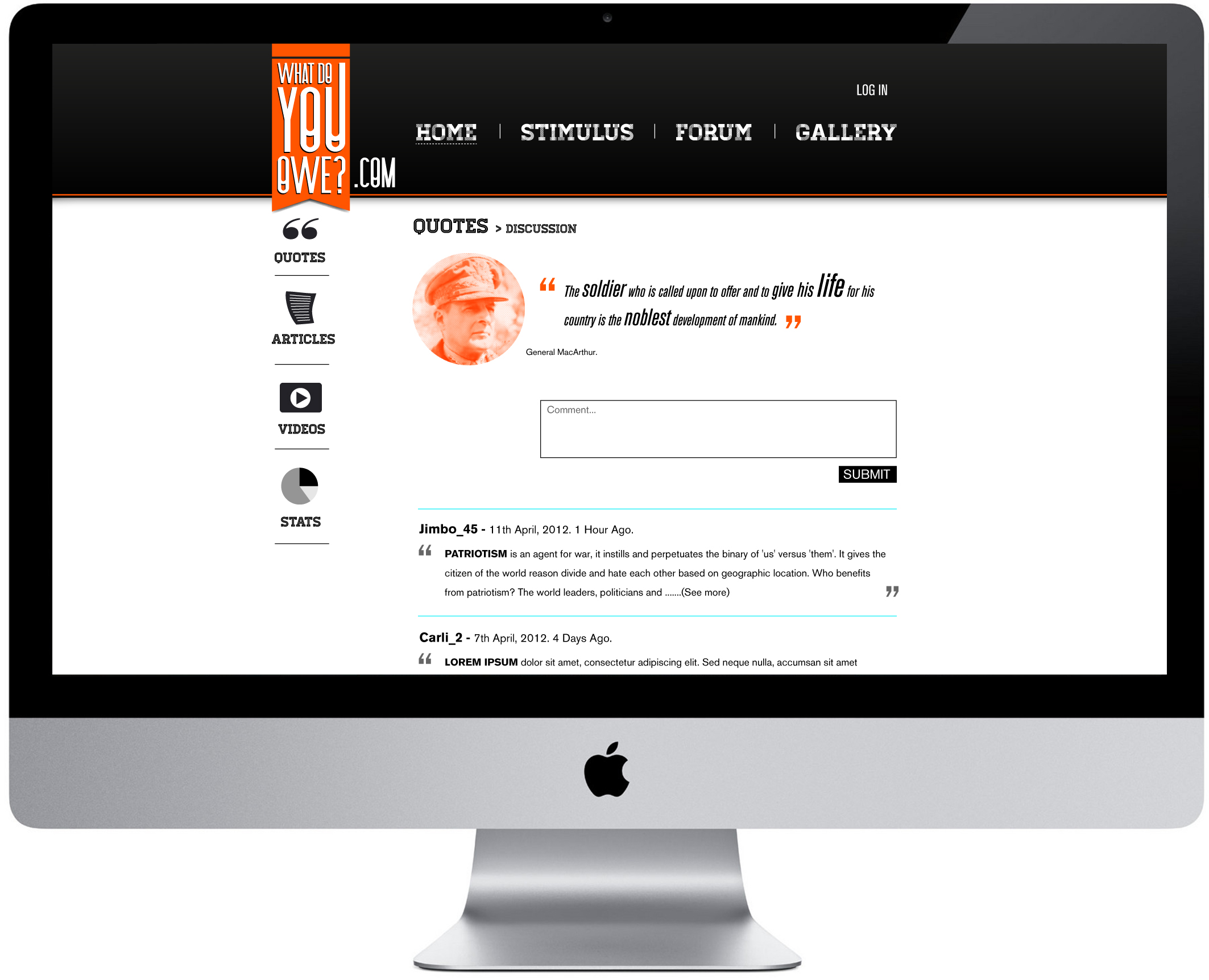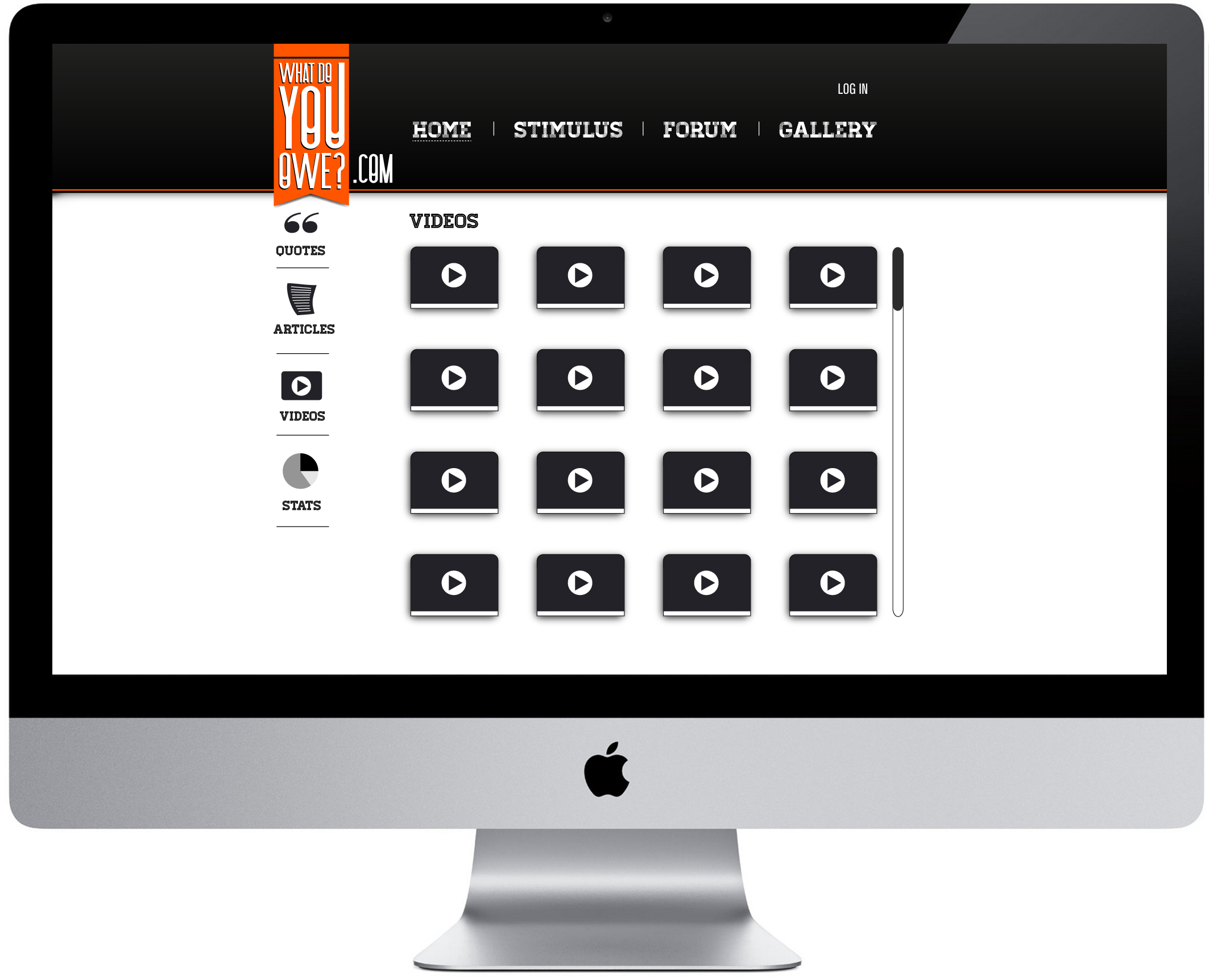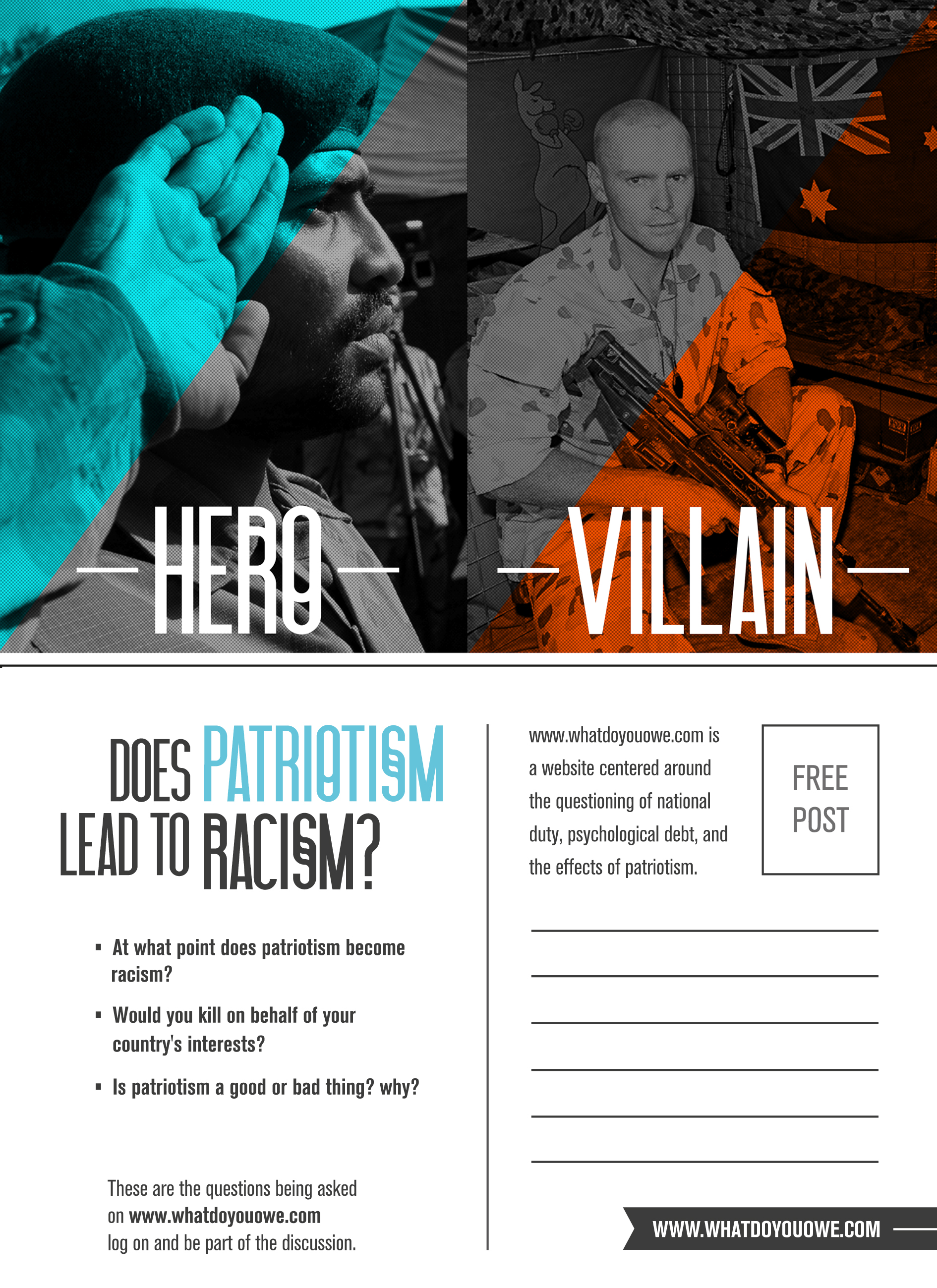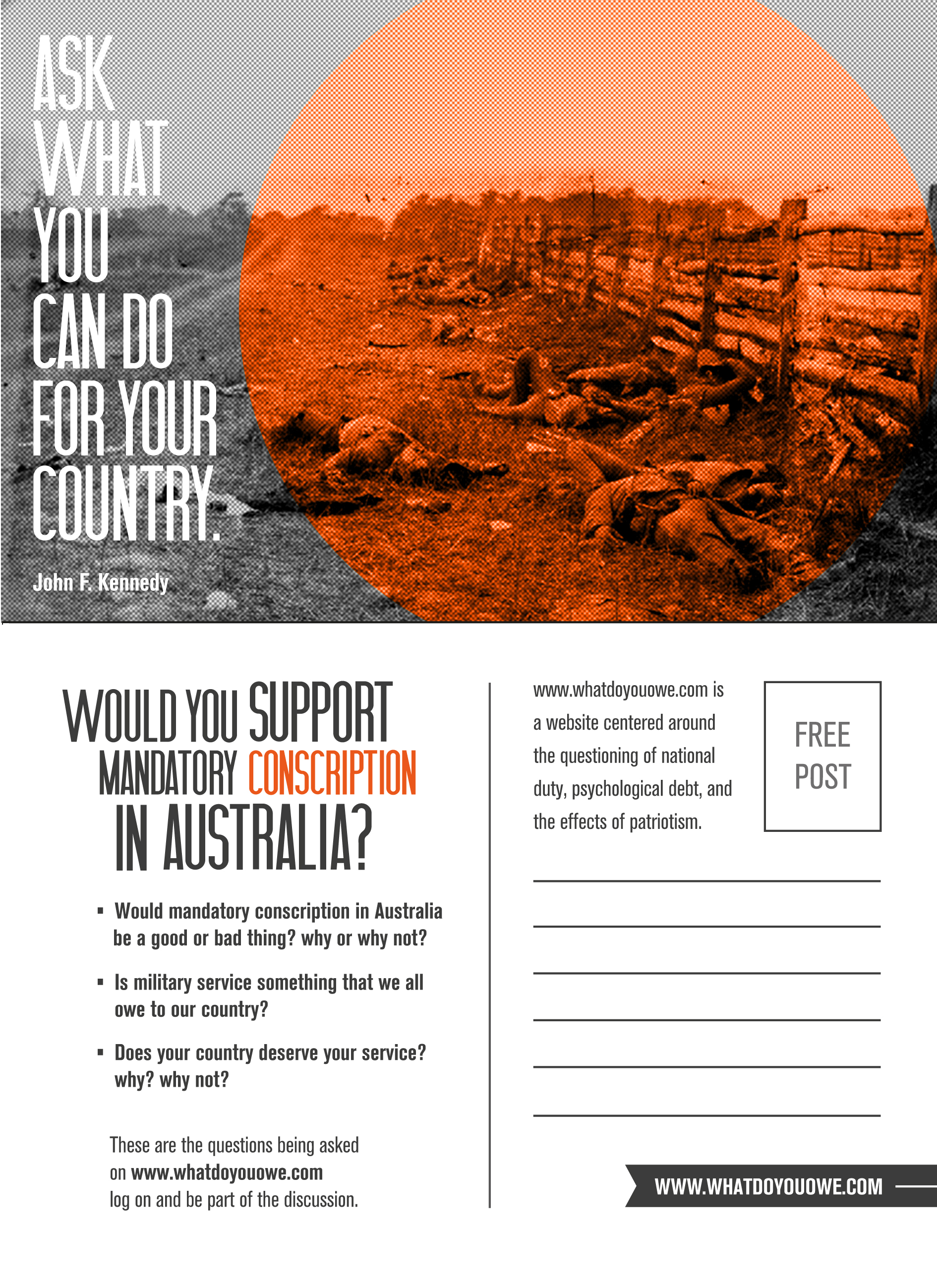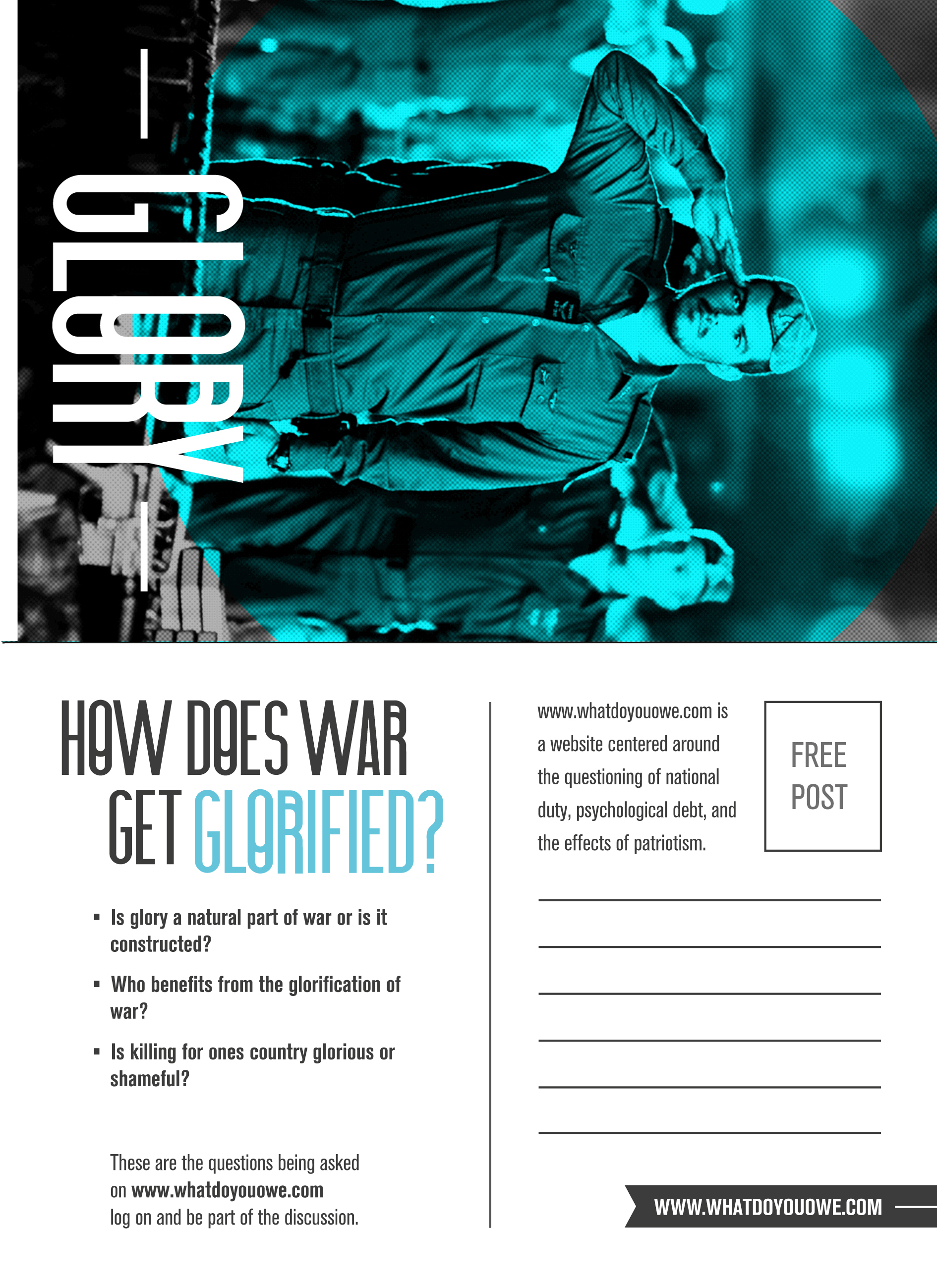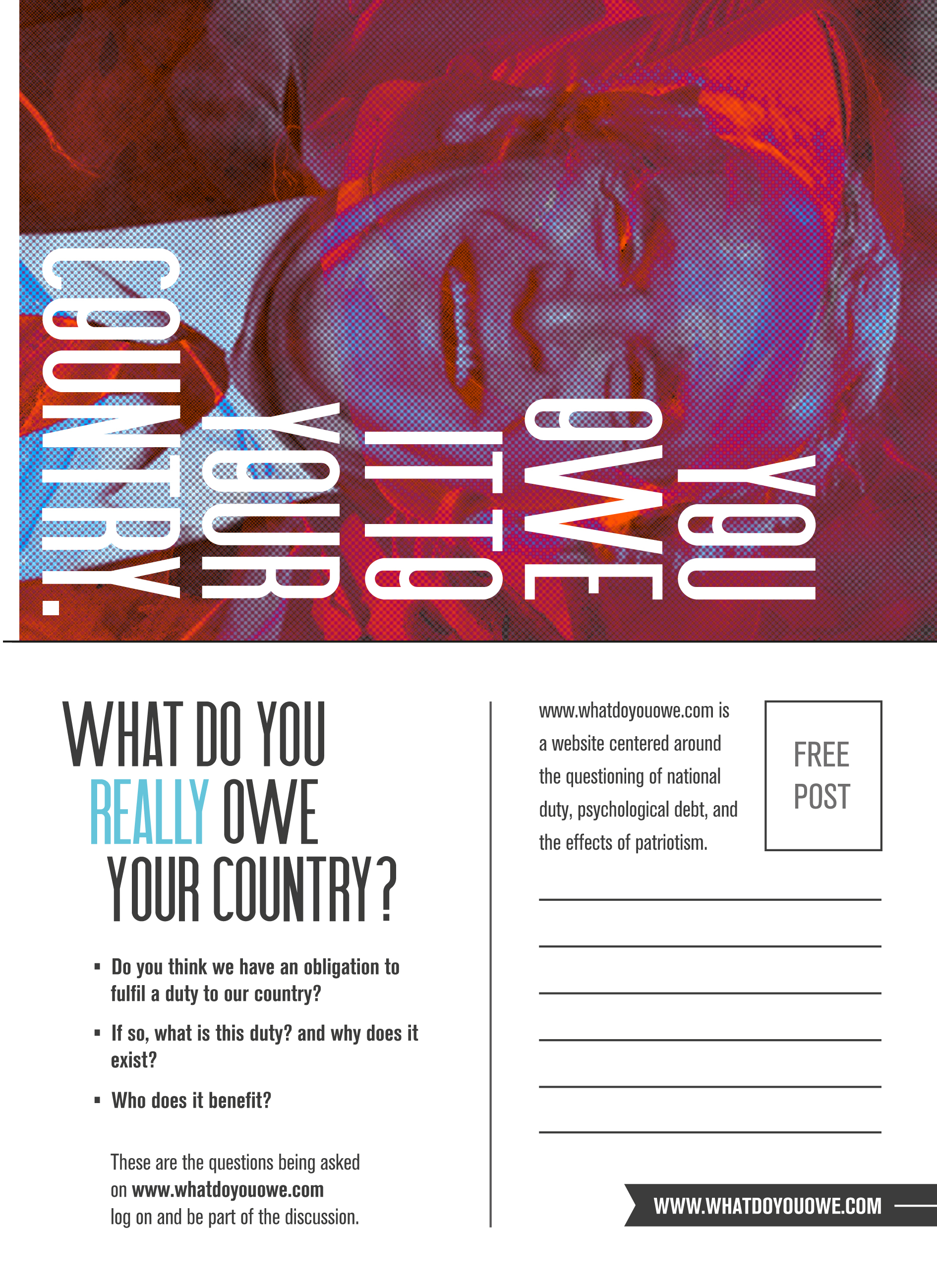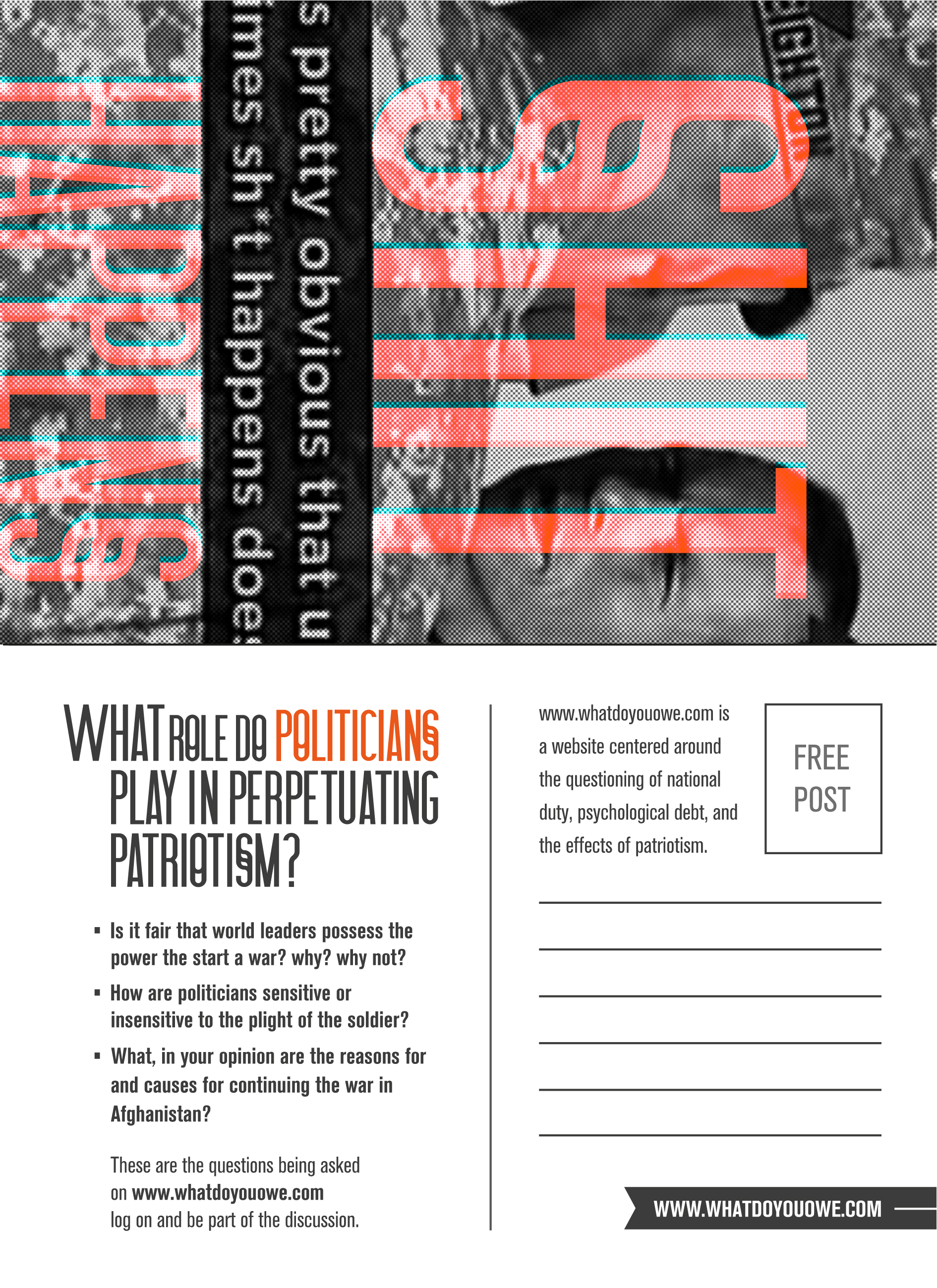What Do You Really Owe?
by JMC
This work has not been commented by curators.
Title
What Do You Really Owe?
Headline
Stimuli for Dialogue
Concept author(s)
Jordan McGuire
Concept author year(s) of birth
1992
Concept author(s) contribution
Completed entire work
Concept author(s) Country
Australia
Friendly Competition
Competition category
Visual communication practice
Competition subcategory
static
Competition field
academic
Competition subfield
student
Subfield description
Queensland College of Art. Bachelor or Design. Majoring in Visual Communication
Check out the Debt. 2012 outlines of Memefest Friendly competition.
Description of idea
Describe your idea and concept of your work in relation to the festival outlines:
Rather the focusing on monetary debt, my response to this years festival outlines arose out of the exploration of psychological debt. My response came from questions like, how do we operate within the discourse of debt? what forces oblige us to conform to this sense of duty? and are these forces constructed or inherent? This years stimulus article by David Graeber about debt’s relationship to ‘slavery’ and ‘power’ provided a good place to start in understanding how the mental construct of debt operates.
This lead to an investigation of how debt binds us and I found myself exploring the binary of duty and country. What do we owe our country? The rhetoric of politicians and generals echo the words ‘duty’, ‘honor’ and ‘country’, Telling us what we ought to fight for, what we ought believe in and respect as truth. My concept is concerned with the questioning of these duties, these obligations on which nationalism is founded.
The goal is to get people to question nationalistic assumptions by creating and collating a range of relevant stimulus for discussion. The hope is to open up a new channel of dialogue by which regular discussion is stimulated by intellectual pieces of communications such as scholarly articles, artworks, important quotes and videos. The aim of this overall is to get people to re-think what is necessarily ‘owed’ to country.
What kind of communication approach do you use?
This channel of dialogue will be manifested as a website, a place where people can log on, view the regularly updated stimulus material, respond, discuss and debate. www.whatdoyouowe.com is a website centered around the questioning of national duty, psychological debt, and the effects of patriotism. In addition to the website I have created a series of lenticular prints that bring into contention a range of topics for discussion. Lenticular printing is a process by which a lenticular lens is used to produce images with the ability to change or move as the image is viewed from different angles. The prints expose some of the binaries inherent in war, duty, country and patriotism. The prints, each with 2 states, reveal the dualistic perspectives at the core of each topic. For example in order to reflect the connection between patriotism and racism I coupled images of a foreign troop and an australian troop with the corresponding labels of ‘Hero’ and ‘Villain’. As the viewing angle is changed the label of ‘Hero’ and ‘Villain’ switches and the foreign troop becomes ‘Hero’, whilst the Australian troop becomes ‘Villain’. This is intended to show the different perspectives of good/bad based on geographic location. Therefore, it shows that being patriotic can lead to raciest ideals. The idea is that this then becomes a conversation starter for online debate.
What are in your opinion concrete benefits to the society because of your communication?
Concrete benefits at the inception of an idea is sometimes hard to imagine. However, I predict that this proposed process of dialogue may lead to the formation of an online community whereby intellectual ideas get shared, healthy debate is stimulated and assumptions are questioned. This then has to the potential to give rise to a better informed society in which ideals of duty and patriotism are rigorously questioned before they are accepted. If this becomes a reality, then perhaps the public will be less likely to partake in and support unnecessary war, which is definitely a concrete benefit to society.
What did you personally learn from creating your submitted work?
I learnt that sometimes in order create an engaging piece of communication that leaves a lasting impact, dialogue must be stimulated. A dimension beyond the static image must be active and mobile.
Through my research, I also learnt a lot about patriotism and how effective it can be at dividing people psychologically.
I learnt that attempting to debase a concept as primal as patriotism is not an easy task, one that in some situation cannot be done. What can happen, however, is discussion; Talking about something is easy, changing opinion is not.
Why is your work, GOOD communication WORK?
This work is good communication because it communicates complex ideas with expressive simplicity. It also opens room for light-hearted but serious discussion about matters that are often only addressed with the stern voice authority or the hysterical hyperbole of activism. Not to say that this project does not use hyperbole, because it does, but it does so in way that encourages rather then ignores the inverse perspective.
Where and how do you intent do implement your work?
As earlier mentioned, the primary piece of this work is the website. So the first stage is obviously coding the design and making it work it to its full interactive potential. The five lenticular prints will function as collectable/promotional postcards. On the backside of the postcard the primary topic-question will appear alongside the three secondary questions and the website information (where the user will go to answer and discuss the questions). The postcards will be printed and distributed at universities, coffee shops, community centers and other public domains. The lenticular prints also have an opportunities to be displayed as posters, whereby walking past will reveal the lenticular shift. Overall it is hoped thats lenticular prints will drive traffic to the website whilst providing an engaging point of discussion to inspired blog threads on www.whatdoyouowe.com.
Did your intervention had an effect on other Media. If yes, describe the effect? (Has other media reported on it- how? Were you able to change other media with your work- how?)
As of yet the work has not been implemented

